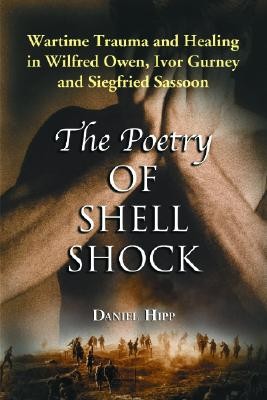
- We will send in 10–14 business days.
- Author: Daniel Hipp
- Publisher: McFarland & Company
- ISBN-10: 0786421746
- ISBN-13: 9780786421749
- Format: 15.5 x 23.1 x 1.4 cm, softcover
- Language: English
- SAVE -10% with code: EXTRA
Reviews
Description
The British poets Wilfred Owen, Ivor Gurney, and Siegfried Sassoon found themselves psychologically altered by what they experienced in the First World War. Owen was hospitalized in April 1917 for shell shock in Scotland, where he met Siegfried Sassoon in June of that year, hospitalized for the same affliction. Ivor Gurney found the war, ironically, to have been a place of relative stability within an otherwise tormented life; When he was wounded during the war's final year, his doctors observed signs of mental illness, which evolved into incapacitating psychosis by 1922. For each of these men--all poets before the war--poetry served as a way to inscribe continuity into their lives, enabling them to retaliate against the war's propensity to render the lives of the participants discontinuous. Poetry allowed them to return to the war through memory and imagination, and poetry helped them to bring themselves back from psychological breakdown to a state of stability, based upon a relationship to the war that their literary war enabled them to create and discover. This work investigates the ways in which the poetry of war functioned as a means for these three men to express the inexpressible and to extract value out of the experience of war. Bibliography and index are also included. Instructors considering this book for use in a course may request an examination copy here.
EXTRA 10 % discount with code: EXTRA
The promotion ends in 19d.05:48:13
The discount code is valid when purchasing from 10 €. Discounts do not stack.
- Author: Daniel Hipp
- Publisher: McFarland & Company
- ISBN-10: 0786421746
- ISBN-13: 9780786421749
- Format: 15.5 x 23.1 x 1.4 cm, softcover
- Language: English English
The British poets Wilfred Owen, Ivor Gurney, and Siegfried Sassoon found themselves psychologically altered by what they experienced in the First World War. Owen was hospitalized in April 1917 for shell shock in Scotland, where he met Siegfried Sassoon in June of that year, hospitalized for the same affliction. Ivor Gurney found the war, ironically, to have been a place of relative stability within an otherwise tormented life; When he was wounded during the war's final year, his doctors observed signs of mental illness, which evolved into incapacitating psychosis by 1922. For each of these men--all poets before the war--poetry served as a way to inscribe continuity into their lives, enabling them to retaliate against the war's propensity to render the lives of the participants discontinuous. Poetry allowed them to return to the war through memory and imagination, and poetry helped them to bring themselves back from psychological breakdown to a state of stability, based upon a relationship to the war that their literary war enabled them to create and discover. This work investigates the ways in which the poetry of war functioned as a means for these three men to express the inexpressible and to extract value out of the experience of war. Bibliography and index are also included. Instructors considering this book for use in a course may request an examination copy here.


Reviews